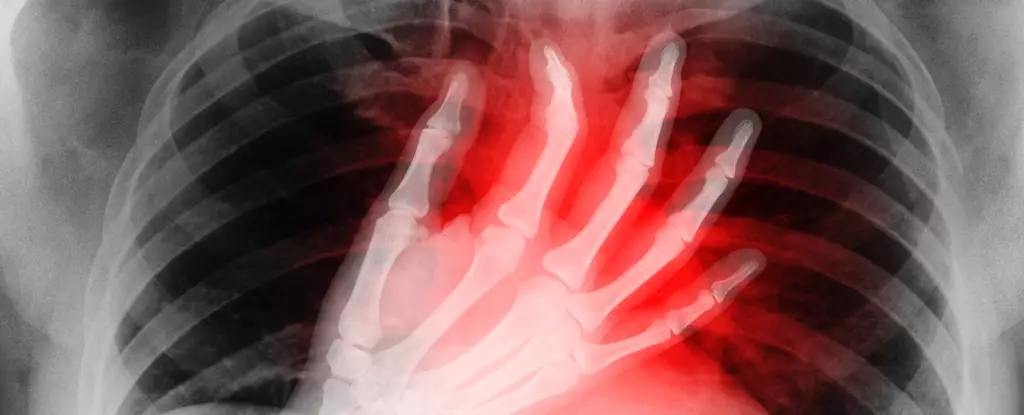The holiday season is often a time of celebration, marked by gatherings filled with laughter, feasting, and, in many cases, a substantial increase in alcohol consumption. While enjoying festive merriment, many individuals unexpectedly find themselves facing a surprising health issue—irregular heartbeat induced by excessive drinking, colloquially known as “holiday heart.” This article delves into the phenomenon of holiday heart syndrome, its underlying causes, symptoms, diagnosis, treatment, and preventative measures.
Holiday heart syndrome is characterized by atrial arrhythmia brought on by binge drinking, and it serves as a stark reminder of the consequences of festive overindulgence. While many are familiar with the immediate effects of excess alcohol consumption, few understand the biochemical and physiological repercussions that can affect heart health. Evolving from the term coined in the 1970s, holiday heart typically manifests during weekends or public holidays but can occur whenever individuals engage in significant binge drinking.
The increase in visits to emergency departments during the holiday season frequently correlates not just with alcohol consumption alone, but with a combination of festive stress, overeating, and dehydration. The result is a concerning number of people presenting with distressing symptoms like rapid heartbeats, flutters in the chest, fainting spells, and shortness of breath.
How Alcohol Affects the Heart
The human body reacts to alcohol in multifaceted ways, particularly affecting the cardiovascular system. Alcohol consumption disrupts the delicate balance within the nervous system, potentially leading to a cascade of detrimental effects that can trigger an irregular heartbeat. Dehydration, a common byproduct of high alcohol intake, contributes to heightened inflammation and electrical instability in the heart, culminating in arrhythmias.
In many cases, individuals may not experience any symptoms and discover their abnormal heart rhythm incidentally during check-ups or evaluations for other health issues. However, symptomatic episodes warrant immediate medical evaluation and intervention.
Individuals experiencing symptoms of holiday heart may seek emergency care. It is crucial to take symptoms, including chest pain and lightheadedness, seriously. Healthcare professionals typically conduct thorough evaluations to determine the presence and extent of any heart rhythm issues. An electrocardiogram (ECG) is a common diagnostic tool utilized by clinicians to monitor heart activity. This non-invasive procedure achieves substantial insights into the heart’s electrical impulses, assessing the activation of its upper chambers through the crucial “p wave.”
In addition to ECG evaluations, clinicians may recommend blood tests to check electrolyte levels and assess liver and kidney functionality. Such comprehensive assessments enable healthcare professionals to devise a tailored treatment plan for each individual.
Fortunately, most instances of holiday heart resolve on their own, especially when individuals reduce or cease alcohol consumption. However, some victims may grapple with chronic issues, such as atrial fibrillation, which is increasingly prevalent in the adult population. When identified, treatment options can include medications aimed at restoring regular heart rhythm, electrical cardioversion to correct arrhythmias, or cardiac ablation in more severe cases. It is essential to address atrial fibrillation promptly, as untreated cases can escalate into serious complications, including blood clots and myocardial infarction.
Critical to avoiding holiday heart is the practice of moderation. Australian health guidelines suggest both men and women limit their alcohol consumption to no more than ten standard drinks per week, with no more than four standardized drinks in a single day. Another effective strategy is to intersperse water between alcoholic beverages, helping to counteract the dehydrating effects of alcohol and promoting overall well-being.
In addition to responsible drinking habits, individuals are encouraged to manage stress effectively, maintain a balanced diet, and integrate exercise into their daily routine. Tailoring your lifestyle to prioritize heart health benefits your overall health, regardless of alcohol consumption.
As the holiday season envelops us in its festive spirit, it is paramount to remain vigilant about our health. Understanding holiday heart syndrome, its diagnosis, and preventative measures can empower individuals to fully enjoy their celebrations without jeopardizing their cardiovascular health. By cultivating awareness and exercising moderation, we can embrace the joy of the season while safeguarding our hearts from the unforeseen consequences of excessive drinking.

